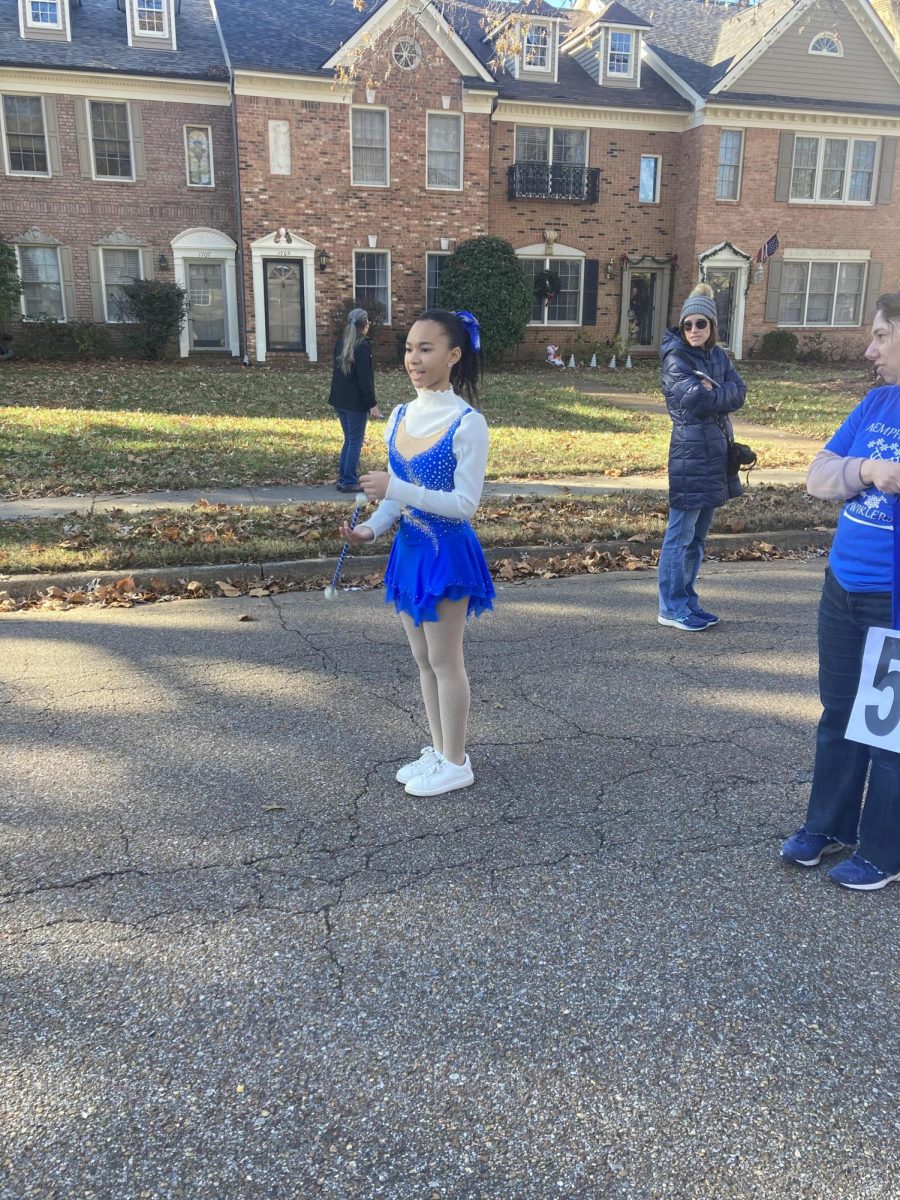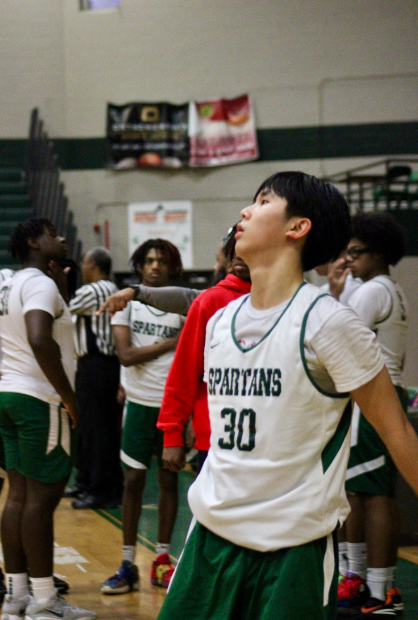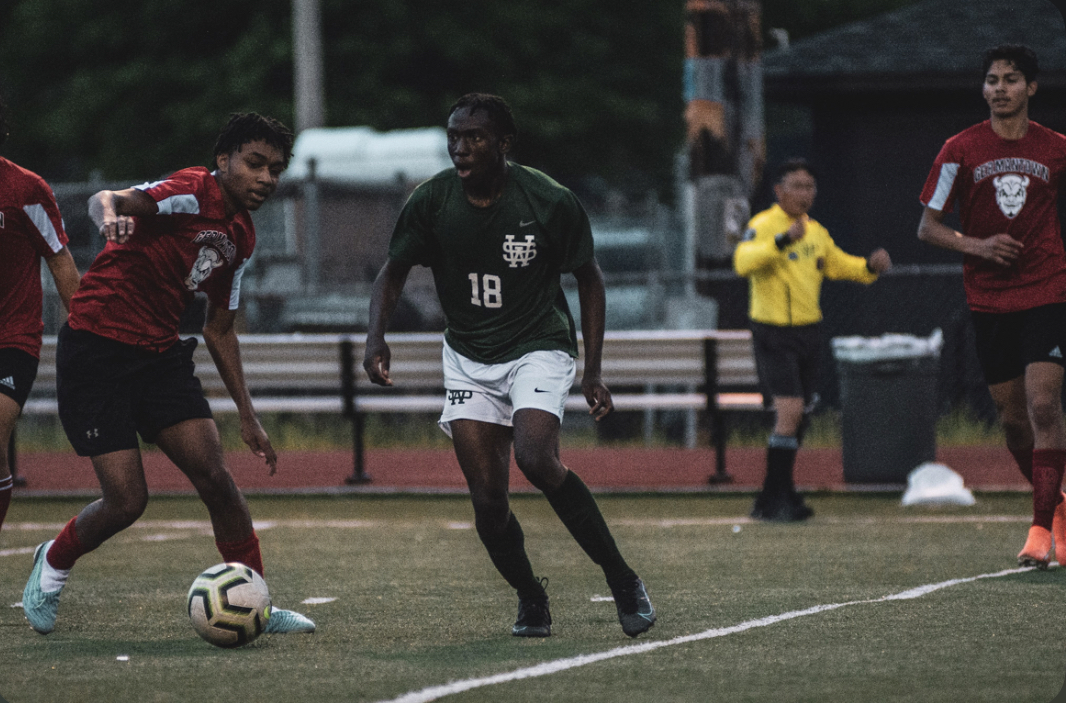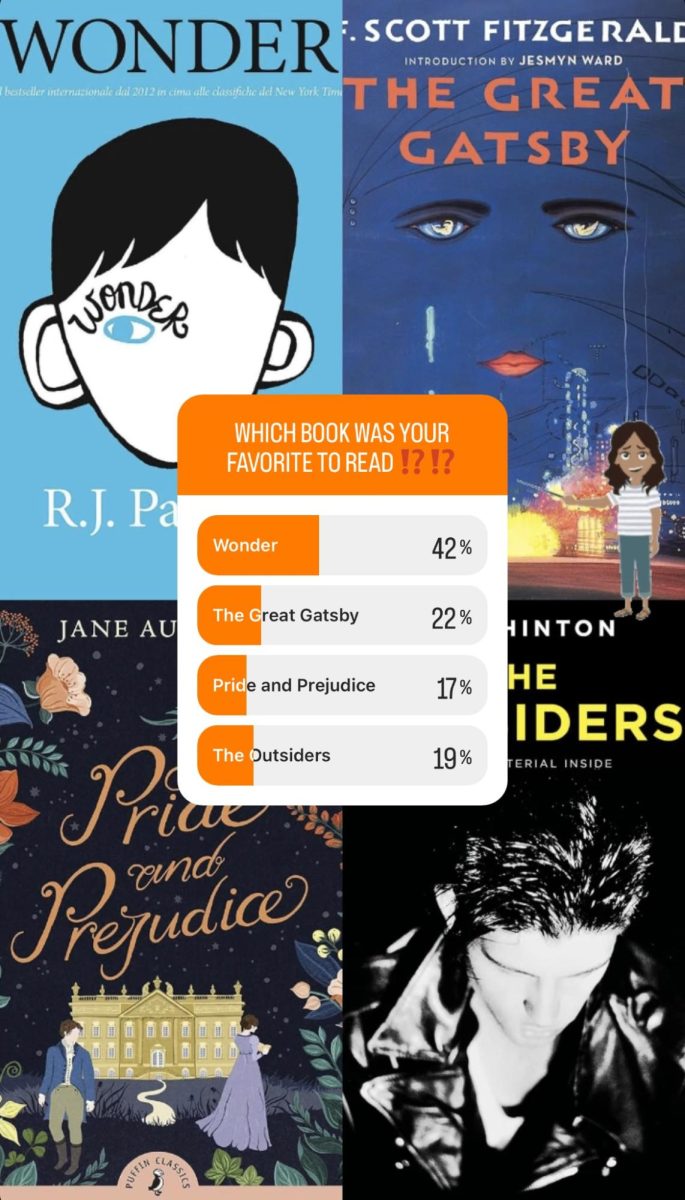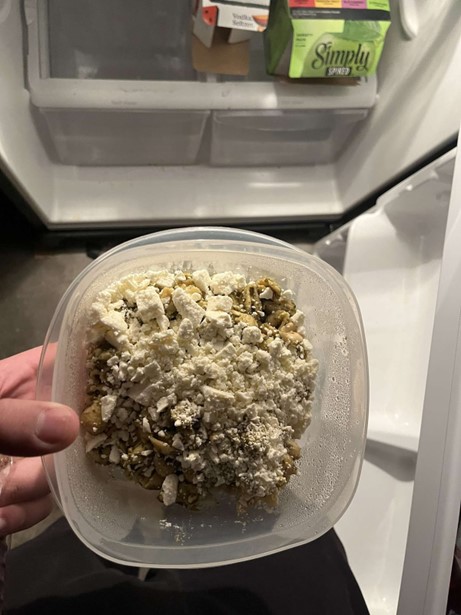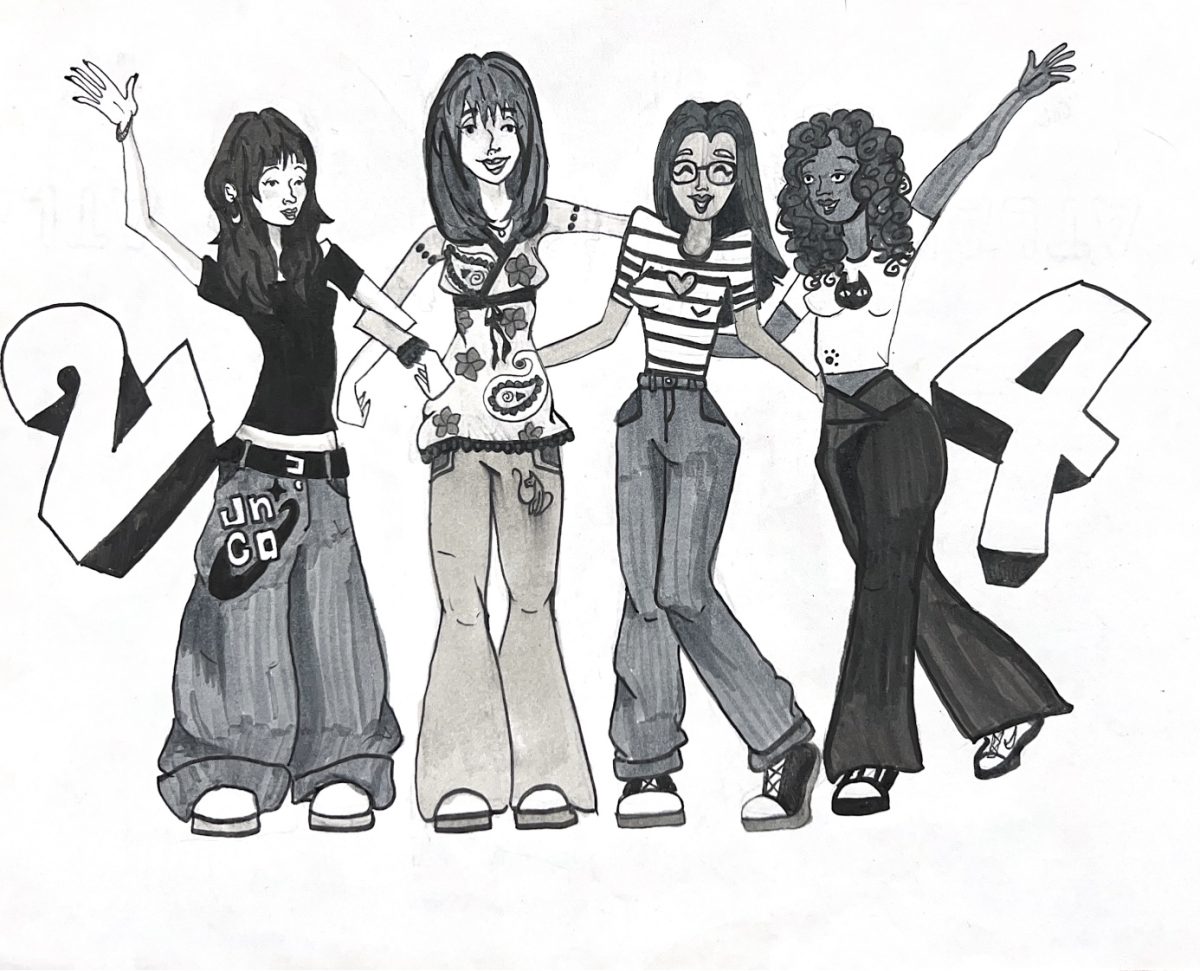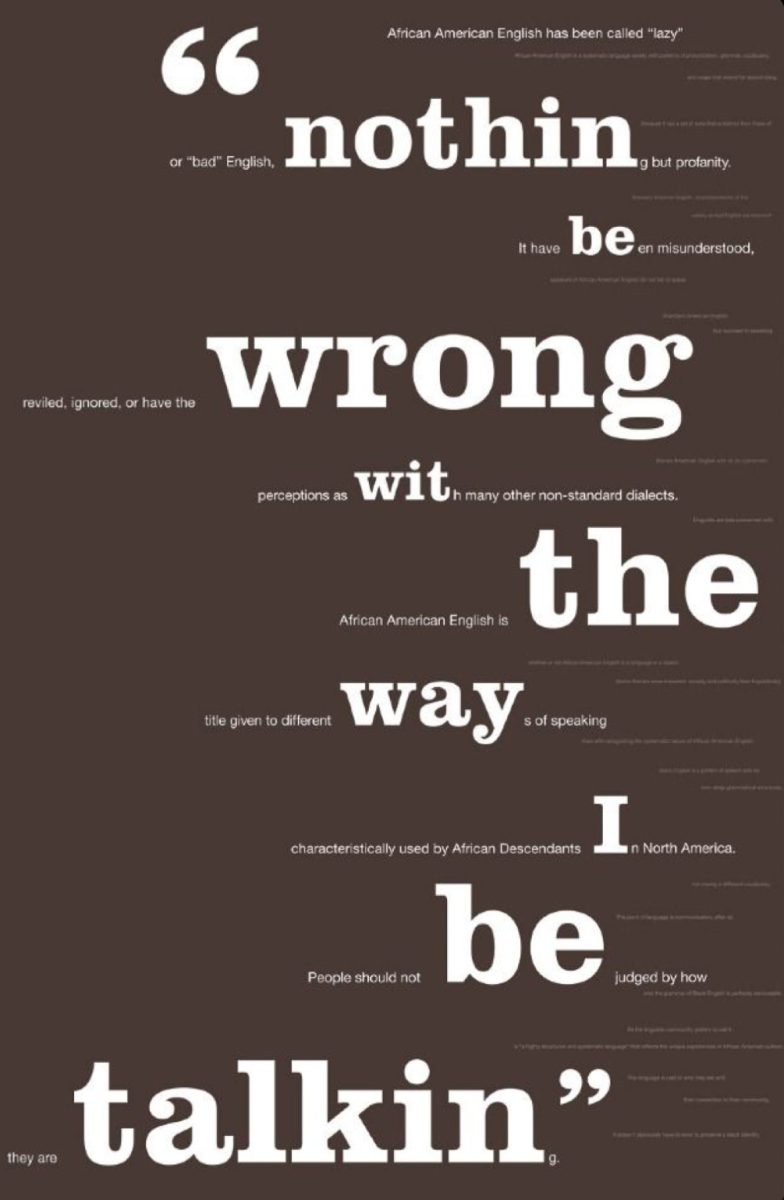
High school hallways echo not only with the shuffling of textbooks, but also with diverse language—each sentence exhibits an aspect of identity and culture. African American Vernacular English (AAVE) is defined as a dialect of African English that is primarily spoken by African American and Black communities in the United States. AAVE has its own set of grammatical rules, vocabulary and pronunciation patterns, distinguishing it from Standard American English (SAE).
However, a recent phenomenon, coined as a “blaccent,” which refers to an adoption or imitation of the AAVE language, has been a dividing point in conversations on appropriation. Some believe that adopting a “blaccent” overshadows the struggle that Black Americans faced, while others believe that accents are a product of a person’s environment.
“I kinda think that you talk like the people around you no matter what,” Anonymous Source 1 said, “If you grew up in a predominately black community, I would expect you to pick up linguistic traits from AAVE, just as someone growing up in the south has a southern accent.”
Code switching is when someone changes their personality or accent to conform to a specific setting. However, the practice of code switching to a blaccent comes with a prerequisite for some students.
“I don’t see any problems with code switching, I do it all the time. I would never talk to the principal the same way I talk to my friends,” Anonymous Source 1 said, “But my Dad, who is black, will code switch to a heavier blaccent when he is around his family because that is normal for him.”
Language gives people the basis to communicate and express themselves. According to some students, White Station High School harbors an environment for open-mindedness and acceptance for various groups, normalizing linguistic diversity.
“At White Station, they offer so many different languages and they are required, ” Anonymous Source 2 said, “We have so many different people and honestly everyone here is so accepting of one another.”
Social media has a large role in how people view social issues, such as diversity. There are various debates on cultural appropriation and the use of AAVE on platforms such as Reddit, Instagram, Tiktok and X, formerly known as Twitter.
“I honestly think the media is too dramatic about cultural appropriation, blowing some small situations out of proportions, overshadowing bigger issues,” Anonymous Source 1 said, “I’ve seen a lot of videos of people criticizing non African Americans for having a blaccent, but other than that I don’t see many positives, social media likes to focus on the negatives.”








